#I surf old web archives a lot and the amount of people who put their life story into those geocities pages omg. full names. county. school.
Text
it kinda reminds me of when people get into arguments on twitter or something and pull out "always someone hiding behind a fake name and picture that isn't them 🙄" uh yeah!! you should be doing that too. come on now. besides, every bit of good old online drama came from hobby message boards between two 43 year olds with disney's goofy and popeye pics
#altho this isn't new. just more commonplace#I surf old web archives a lot and the amount of people who put their life story into those geocities pages omg. full names. county. school.#maybe it was because they felt the internet was a lot smaller then?? like oh no one's gonna find my Peepaw's Recipes and Rest Spot webpage
8 notes
·
View notes
Text
LIBRARY VS INTERNET

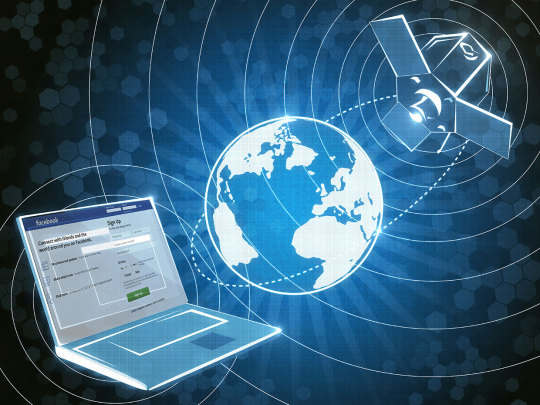
For you? Which is better, Library or Internet?
We live in the information age, where access to many wonderful Internet resources is just a few quick clicks away. For this reason, you might be thinking, "Cool. I don't have to go to the library. I can do all my research online." Not so fast. The Internet is not a substitute for the library. It's a tool best used in addition to traditional research sources.
Why use both? Because each has resources, benefits, and limitations that the other does not. Examine the advantage and disadvantage of both the library and the Internet below.
Let’s start with:
Advantages of Library:
They play an important role in English language learning. People from all over the world come to the U.S. looking new opportunities for them and their families, and often times, English is not their first language. Before they can find success, they need to find a place to learn a new language.Libraries provide English language learners with the opportunity to immerse themselves in their new language, whether it be through periodicals, books, audiobooks, or resources online. Many libraries also offer multilingual books for adults and children that are designed to help new English learners master the language in a fun and engaging way.
Libraries are safe refuges for the homeless and underserved populations. Each morning when public libraries open their doors, they become shelters, learning centers, and employment centers for the most underserved population.In many areas, homeless shelters partner with libraries and provide transportation between the two locations every day.
Libraries make communities healthier. When you think of a library, you probably don't think of it as a center for health and well being, but in many cases, it is exactly that. Through their community programs, direct librarian assistance, fitness classes, and basic internet access, libraries provide important equal access opportunities to those seeking health information and services.
Advantages of Internet
Easy to find information and knowledge. The Internet allows people to learn information about any topic and offers an answer to any type of question, as it contains endless knowledge and information. Using a search engine like Google Chrome, Mozilla Firefox, and more, they all allow users to ask any question and find a web page with an answer about that question. You can also watch videos about any topic on sites like YouTube, which contain millions of videos of several topics. Also, you can learn online courses in many different subjects.
Lots of entertainment. The Internet provides people to access endless entertainment. With the Internet, you can watch movies, videos, play games online, listen to music, etc. There are many sites available on the Internet, which contain different entertainment material like music, videos, and more. Also, you can watch online videos on a platform like YouTube. Furthermore, you can download any movies, videos, or other entertainment material via the Internet on devices like computers or mobile phones that can be played anytime without an Internet connection.
Cloud computing and cloud storage can save your files. One of the biggest advantages of the Internet offers connectivity to your computer and Internet-enabled devices to connect with cloud services, such as cloud storage and cloud computing. A device can have access to more powerful computers to perform complex tasks with cloud computing whereas your business work on other tasks.With cloud computing, you can access your data anywhere as cloud storage synchronizes data across any of your Internet-connected devices. It makes your data more secure because your files are stored in a professionally-maintained server. Therefore, if you are using a cloud storage backup service, you will not lose all your valuable data even if your home or office burned down.
Next is the:
Disadvantages of Library
Searches Take Longer and Are Less Efficient. Searching for a specific book in a card catalog the most iconic manual library system means moving from one index to another when you change your search from author to title. With an automated system, you can conduct any kind of search you like from the same location with a few clicks. This saves patrons time as compared to the old way, and needs less help from library employees. Because all indexes are virtual instead of physical, an automated system can have more search categories without adding another piece of furniture.
Left Behind on the Information Highway. Libraries and information are becoming digitalized at a rapid pace. Any library still using a manual operating system can't connect to digital resources. This makes sharing information and publications much more difficult and time-consuming than with an automated system. As the 21st century progresses and more resources become fully digital, patrons of manual libraries will be unable to access a growing percentage of information.
Putting Limits on the Future. E-books, podcasts, blogs and video tutorials are all part of how the modern world communicates the sum of human knowledge. Libraries with manual systems have limited access to this growing body of work. Any quality automated system, by contrast, will by default grant remote and on-site access to most of these resources.
Disadvantages of Internet
Bullying, trolls, stalkers, and crime are common. Anyone who has spent time on the Internet has encountered trolls or abusive people. Another issue that has increased over the years is cyber bullying. With people sharing information on the Internet, stalkers may experience less difficulty finding personal information about others through various means.Hidden places on the Internet and the deep web can be places for criminals to conduct business without as much fear of being caught. A global audience also gives criminals more ways to solicit their goods.
Pornographic and violent images. In our digital age, there is a nearly an infinite amount of content on the Internet. While there are amazing resources, such as Wikipedia, less desirable content also exists. Consequently, users can accidentally come across violent or pornographic images that they may not want to view.
Addiction, time waster, and causes distractions. Surfing and playing games on the Internet can quickly become very addictive. Doing so can lead to spending a lot of frivolous time on the Internet, instead of doing something productive. On this same note, the Internet can hamper workplace productivity as well.
What will you choose?
For me, I chose library. Here are some reasons why I chose library:
Libraries are safer spaces. The internet brings people together, often in enjoyable and productive ways, such as over shared interests (pop culture blogs, fanfic sites) or common challenges (online support groups). But cyberbullying and trolling can leave people reluctant to engage with folks they disagree with or to share their ideas in the first place. Libraries are places where people can gather constructively and all are welcome.
Libraries respect history. Web pages are ephemeral, and link rot is a real problem. The content of library collections is much more stable. Printed materials are generally published on acid-free paper, which will not disintegrate. And librarians are leading the way to bring similar stability to the web through services like the Internet Archive and perma.cc.
Libraries digitize influential primary sources. While looking at historical artifacts is valuable, repeated physical handling can damage them. Making digital versions of important works available online as in the National Library of Medicine’s Turning the Pages project is one solution. Libraries digitization projects also provide information to people who do not have the resources to travel to a particular library. Librarians are using the emerging technology of the internet to further the timeless mission of providing better access to information. The internet is the platform that enables this progress, but librarians are doing the work.
Libraries host makerspaces. Given that makerspaces provide venues for creativity, learning, and community, it only makes sense that libraries champion them. The maker movement has grown rapidly—in 2016 there were 14 times as many makerspaces as in 2006. Both public and academic libraries host makerspaces. You can learn about makerspaces online, of course. But to visit one you have to venture into the physical world.
Libraries can help you sort the real news from the fake. While a plethora of useful, accurate, and engaging content is available online, the web is filled with inaccurate and misleading information. “Click bait” headlines get you to click on the content even if the underlying information is superficial or inaccurate. Misinformation is the spread of deliberate falsehoods or inflammatory content online, such as the Russian-backed ads placed on social media during the 2016 US presidential election. Librarianship has always been about providing objective, accurate, and engaging information that meets the needs of a particular person. This has not changed, and it is why librarians are experts in information literacy.
Libraries guides you to exactly what you need. Google is an impressive search engine, but its results can be overwhelming, and many people do not know to filter them by content type (such as .pdf) or website source (such as .gov). Google offers many search tips, which are useful but generic. A conversation with a librarian can clarify exactly what you are looking for and figure out the best way to use Google or many other resources to find it.
Libraries do not track your reading or search history to sell you things. Amazon’s book purchase recommendation feature is useful for learning about new books. But this usefulness comes at the expense of your privacy because your reading data is valuable business intelligence for Amazon. The same is true for your web searching history, which is why you often see ads for a product for weeks after searching for it just once. Librarians value and protect your privacy.
Libraries do not censor. One core value of librarianship, as exemplified by the work of ALA’s Freedom to Read Foundation, is thwarting censorship and allowing the free and full exchange of ideas. The internet is a powerful tool for information sharing, but it takes human advocates to stand for information freedom.
The use of both library and the internet will depend on the researcher. In a research the material cited on paper needs to be up to date to ensure accuracy. The rise of the internet has presented researchers with new sources of information. The ease of locating an info in a vast array of data on the internet is a tempting alternative to visiting the library. There are numerous benefits to relying on libraries for research purposes. The information stored in the library is usually of quality, and librarians take great pains to ensure that the periodicals and books housed are reliable sources. Libraries often include material that cannot be accessed on the internet, or at least cannot be accessed for free. The library and the internet seem to be serving the same purpose in the lives of the researchers; it is just a matter of pick.
4 notes
·
View notes
Text
How the worst parts of the internet helped shape me as a kid

This post is part of Mashable's You're Old Week. Break through the haze of nostalgia with us and see what holds up, what disappoints, and what got better with time.
a/s/l?
If you know what those three letters stand for, there's a good chance you grew up on the internet like myself. An internet filled with opportunities to steal your innocence.
There was something special about the internet of the late '90s and early 2000s that can never, ever be replicated. It was mysterious, misunderstood, and truly a free place of exploration. More importantly, it was mostly anonymous, or at least it appeared that way.
SEE ALSO: How creepy YouTube channels trick kids into watching violent videos
As parents currently grapple with how their children interact with the internet at such a young age, it's important to take a step back and look at how we got here. Let's relive some of the horrors I witnessed growing up on the internet and consider what lessons their lingering effects hold for this generation.
Chat rooms
For those utterly lost, a/s/l stands for age, sex, and location, and was commonly used in chat rooms during the golden era of the internet — 1995 to 2005-ish. Thanks to Facebook and the rise of social media, much of what we now do on the internet is tied to our real names. But back in the day, we hid behind usernames and screennames, and we changed them often.
I don't exactly remember any vivid conversations I had on the internet with strangers, but I do recall frequenting Yahoo Chat rooms when I couldn't find any of my friends to chat with on AIM. Remembering that today, I'm kinda horrified.
While those chat rooms around the internet had plenty of normal people just looking for conversations, they were also riddled with who the fuck knows trying to get off or take advantage of a young kid. There was even a dedicated section just for teens. Even worse, you could chat with people based on a specific location.
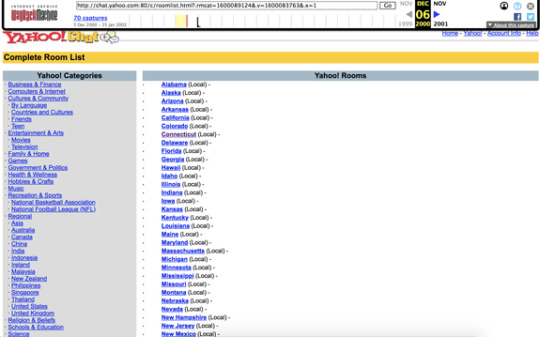
A screenshot of Yahoo chat from the year 2000.
Image: yahoo.com via waybackmachine
Yahoo Chat rooms were rife with catfishing long before the internet term was ever coined. You could be whoever you wanted to be when someone asked you a/s/l? And people were pretty upfront about seeking kids to chat with. While, thankfully, there were no To Catch a Predator scenarios for me in the days of the early internet, it's highly likely I interacted with plenty of scummy people looking to take advantage of kids during that time.
Back in 2005, Yahoo finally shut down user-created chat rooms in an agreement with law enforcement. "Yahoo removed or barred the posting of 70,000 rooms whose names suggested illegal conduct, including the promotion of sex between adults and children," CNET reported at the time.
Yahoo permanently shuttered its public chatroom feature in 2012.
Somehow, I made it out unscathed, and was smart enough to know better, but the chat rooms of the early internet were truly a terrifying place.
Rotten.com and gore galore
Just last year, the internet lost one of its earliest and most disturbing websites, rotten.com. For now, at least.
"The soft white underbelly of the net, eviscerated for all to see: Rotten dot com collects images and information from many sources to present the viewer with a truly unpleasant experience," a welcome message reads on an archived version of the website from 1999.
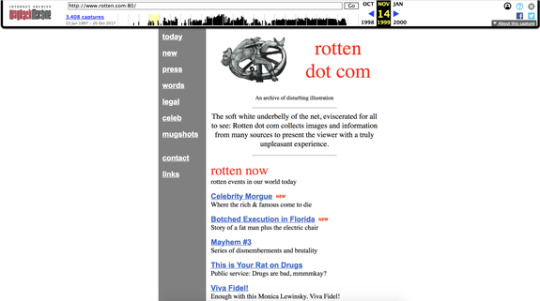
A screenshot of Rotten.com from the year 1999.
Image: rotten.com via waybackmachine
Simply put, rotten was a compilation of the worst images the internet could find. From pictures of dead celebrities to photos of brutal crime scenes, car crashes, and botched surgeries, the shock site was capable of disturbing just about anyone who made their way to it.
Rotten.com was introduced to me by an old boyfriend of my sister's when I was probably 11 or 12. I recall seeing a photo of a man involved in a motorcycle accident, his head splattered across a highway, and another picture of a guy sucking his own dick. The picture of the accident still fucks me up; the photo of the guy giving himself a blowjob is still impressive.
While I (thankfully) never became a frequent visitor of rotten.com, the disturbing images I saw on the site desensitized and prepared me for the awful internet of today. As I grew up with the internet by my side, I can recall seeing countless beheadings. I watched the entire video of Saddam Hussein being executed in 2006, an unnecessary amount of shootings, car accidents, and just about everything else that would make a normal person vomit.
Seeing those pictures and videos at a young age absolutely helped me cope with some of the things I see on the internet today. Would I be better off not seeing them? Maybe.
Porn, porn, and more porn
I was about 11 or 12 when I was sitting at my computer, probably playing 3D Pinball when I overheard my dad and his friend talking in the kitchen, just down the hall.
"You can just type lingerie into the search and you wouldn't believe what comes up," he told my father, revealing that there was actually porn on the computer in the living room, which he literally never touched at that point.
"No wonder he spends so much time on that thing," my dad joked, clearly referring to me. Jokes on you, Dad, because I had no idea of the obscenities that were available just a few clicks away.

A screenshot of sex.com from the year 2000.
Image: sex.com via waybackmachine
Of course, the first moment I was left alone after hearing there was porn on the internet, I typed something like "boobs" into AskJeeves or Yahoo search. I surfed my way to a crude porn site as fast as my 56k modem could bring me, only to be greeted with an age disclaimer asking me if I was 18 years of age or older.
After thinking it over for a few seconds, I decided to risk it and click "yes." Despite thinking the FBI was going to raid my house for this very serious offense, this began my exploration into sex. I never got "the talk" from my parents. It didn't matter — I had the internet.
It's worth noting here that the internet moved at a grueling pace back in the late '90s when 56k was still king. So navigating a web page with photos, like porn, took a very long time. Given this fact, and that at the time my computer was shared with my family, I decided to do what any preteen would do with a color printer.
That's right, I printed out porn. My mom found it in my sock drawer, and still occasionally makes fun of me for it.
While there are more than a few think pieces on how learning about sex through internet porn is terrible for a young boy's mind, and will turn them into sexist monsters with unrealistic expectations, I'm thankful for the unfiltered internet as a useful resource in my horny pubescent youth.
Talking about sex with anyone — even friends — can be humiliating at that age, and at the time sex education provided to me in school was laughably bad, sometimes even frowned upon. That said, there are definitely more appropriate ways to learn about sex, and as a society, we have much to improve upon.
Weed, drugs, and an online education
When I was 14 years old, I smoked weed for the first time.
This wasn't some spontaneous decision made in a dimly-lit room forced by peer pressure. I wanted to try marijuana, I sought it out, and I learned everything that I need to know about smoking weed through the internet.
Weeks before lighting up, the topic came up among a few of my good friends at the time, and we decided we were going to do it. I won't lie, I was pretty terrified of what would happen, so I did my best to sift through the bullshit pushed upon us by D.A.R.E., and find out the truth about marijuana. I found Erowid.
While there were plenty of websites dedicated to cannabis in 2001 and 2002, Erowid was, and remains, one of the best sources for information on drugs. The thing that makes Erowid so great is that it provides real information from real people about their experiences with various drugs, including dosages, effects, and experiences.
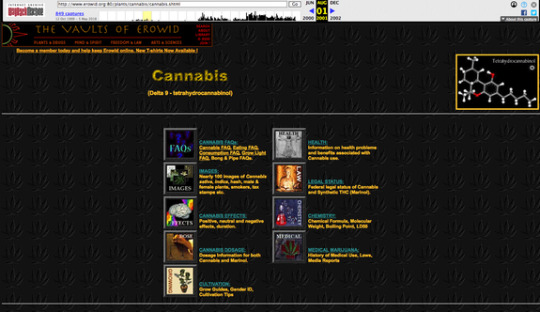
A screenshot of Erowid.org in the year 2001.
Image: erowid.org via waybackmachine.
I'll be the first to admit that I adopted cannabis use way too young, and I'm sure that it affected my school performance and my brain development. But teens and young adults aren't going to stop experimenting with drugs and alcohol, and at least the internet informed me of the real dangers in a way that wasn't preachy.
Would I have tried cannabis without the internet? Definitely, but using the web to learn about drugs was an invaluable resource that was not available elsewhere. I consider myself lucky for landing on Erowid, and not a forum with irresponsible users suggesting people us harder drugs.
Are the kids gonna be alright?
I've been thinking a lot recently about how the internet has shaped me as a person, and how it's affecting the youth today. Before muttering their first words, kids have probably already watched a YouTube video. They have Instagram accounts before they're able to read, and hashtags dedicated to their entire lives.
But for me, the internet was a choice. I sought it out, and all of its opportunities to corrupt my youth. For kids today, it's become nearly impossible to disconnect.
And again, when I discovered corners of the internet I shouldn't have ventured to as a kid, it moved at a snail's pace. Today's web is fast, pictures load in the blink of an eye, and HD streaming video is basically expected, thanks to YouTube.
It feels like the internet is at a breaking point, and we as a society are finally questioning the experiment. It's incredibly important for us to ask ourselves how the internet has altered our lives, and not just the convenience factor with 2-day free shipping, but really, how has the internet changed who we are? It certainly changed me growing up.
I do still value the internet as an important growing up tool, which helped me learn about life, both the good parts and bad. But in the back of my mind I'll always wonder what would have happened to me if I never logged on.
WATCH: You know you're getting old when you remember using these phones

#_uuid:cdef7de6-6b47-3f67-adef-4c1cecbc5715#_author:Brian Koerber#_lmsid:a0Vd000000DTrEpEAL#_revsp:news.mashable
0 notes
Link
Written by Guest Contributor on The Prepper Journal.
Editor’s Note: This post is another entry in the Prepper Writing Contest from valknut79. If you have information for Preppers that you would like to share and possibly win a $300 Amazon Gift Card to purchase your own prepping supplies, enter today.
On October 21, 2016, the internet broke. Netflix, Twitter, Paypal, and more were all hacked, and it took most of the day for representatives from the many major companies affected to find, fix and implement the problems. For most people, this was a minor disruption to their day. To my teenage daughter, the SHTF situation we’ve all been waiting for was occurring right then and there. She instantly lost at least half of her ability to communicate and find news, she lost her entire source of entertainment, and she lost the ability to pay for anything online, even if temporarily.
//
I think it’s safe to say that we could all live without Twitter. Netflix is a great modern convenience, but we could live without that too. What would happen, though, if we lost Wikipedia? I know that I reference Wikipedia at least twice a day, whether it’s for random historical trivia, information I need for work, or items of interest I’m using to plan my next prepping project. To lose access to what I consider to be the major source for all accumulated human knowledge would be a major blow. News recently broke that the Turkish government is preventing it’s citizens from accessing Wikipedia.
The outage I referenced earlier was one of the largest in the short history of the internet, and it was, fortunately, quite temporary, lasting around 12 hours. What if it affected your personal PC? The infamous computer hijacks and ransomware that have been plaguing PC users for the past few years often destroy and corrupt enough of your internal data that it cannot be recovered. What if it were permanent? That could be an EMP attack or a CME that wipes out all power, or it could be a targeted hack that we can’t figure out how to solve, or something else entirely. What happens if our government passes laws similar to those already in place in Turkey and many Asian countries which prohibits access to sites which they have decided contain information they don’t want shared?
I don’t have all the answers to these problems, but I know one potential solution – Local Data Backup. Most amateur computer owners have one or more PCs, with probably only one or two copies of their most important data – resumes, scans of birth certificates and other legal documents, family photos and more. The true solution is to have many copies of your important data stored locally, updated frequently, and maintained in a Faraday cage in case of an EMP attack.
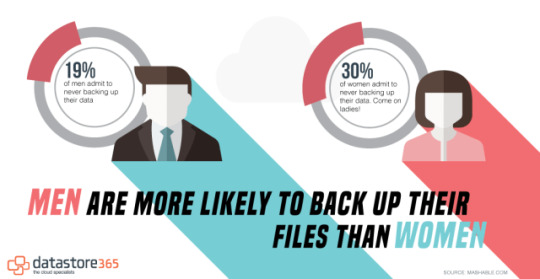
To start, you’ll want a high-capacity data external storage device. I would recommend at least 8 terabytes of storage space per unit, and multiple drives if possible. You should also have at least one or two flash drives that store at least small parts of this information. This should run you about $200. That, and an older computer or tablet with a USB cord and an internet connection should be all you need for this invaluable project. I’ve heard some preppers who prefer to maintain optical discs with information on them, but a number of the solutions I want to implement will require files that are larger than the storage capacity of a single DVD or CD. You’d also have to consider storage space – all those discs and the disc drive itself will take up more space than a single external drive.
Personal Data comes first
The chances of any computer contracting a virus or a worm while you’re surfing the internet (yes, even you Apple people) is significantly higher than the chances of an EMP attack happening in next few weeks. It’s important to have a copy of your birth certificates and other important documents, including copies of social security cards, recent pictures of your immediate family, address and phone contact information, and other information available for bug-out situations, and it’s valuable to have that data stored in a variety of locations, including on your external hard drive. It is also highly recommended that you maintain a copy of receipts or warranty’s for major appliances, and pictures of each of the rooms in your house. It is possible that, in the event of a major flood or fire, that you could use these items to help increase the amount of money you can get back from home insurance as proof of at least some of the major items you’re keeping in each area of your house.
Second, survival. One of the first tricks that preppers learn when getting involved in the lifestyle of preparedness is that it’s possible to download a wide variety of “prepper manuals” online, including military survival PDFs and other documents. You could even save valuable web pages and articles for offline viewing. I have printed many materials to put in a binder, but again, that takes valuable storage space, and could be easily destroyed in a fire or a flood. My digital copies of data, so long as they remain well-protected in their Faraday cage, are safe from most dangers.
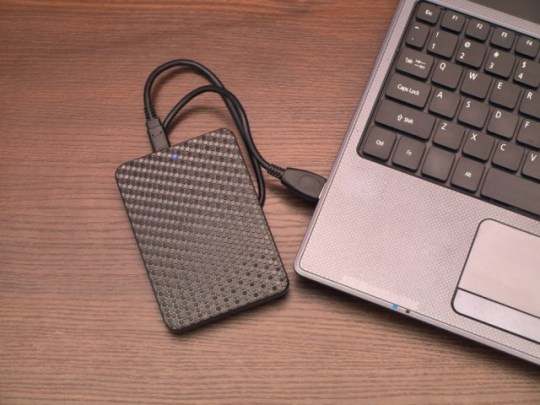
Next is the broad category of “items of personal importance” which could include almost anything that you find important to keep around. What’s in my collection? Family photos & videos take up a large bulk of my storage space. A simple feed scanner that you can purchase on Amazon for about $100 will allow you to scan and store thousands upon thousands of photos onto your external drive, where they are well-protected from flood damage and fading due to aging, and where you can easily gift them to another relative to open up more storage space under your stairs for prepping supplies. All of my wife’s hard work on our family tree is now scanned and preserved in it’s own folder as well for the next generation to continue the work, as are my grandfather’s old diaries we’ve been left. I also keep a local copy of any digital media I own, which is everything from digital copies of Disney movies that come for free with the Blu-Rays I’ve purchased for my kids, to those new music albums that I’ve bought as MP3s because it was cheaper and more convenient than buying the disc. I’ve got downloaded digital copies of my Audible collection, and a few Kindle books as well. Essentially, if I’ve paid money for it, I have a copy of it on my external drive that I can download and access forever, even if these host companies go out of business or lock my accounts.
Additional data to backup
Finally, you can do what I’ve done and keep a localized backup copy of Wikipedia and other sources of world knowledge. Many of these archive sites allow anyone to download a full copy of the entire site, and with a Wiki reader, it’s possible to maintain a version of Wikipedia which does not require the internet to search. In addition, you can also download a few other collections for posterity , including a huge collection of out-of-copyright novels from Project Gutenberg that could keep you reading for your entire lifetime without having to purchase a new book.
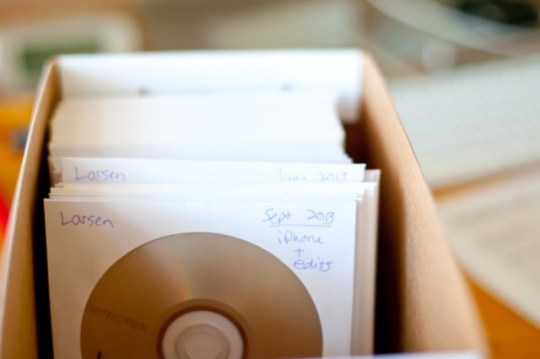
I believe that maintaining at least a bare-bones minimum of these documents and files is essential regardless of whether you take the steps necessary to protect this data from an EMP. For that, a Faraday cage – an enclosure completely surrounded by metal on all sides – is important. There have been thousands of people before me who have discussed the creation of such a device, so I’ll leave them to it. Suffice it to say that if an EMP occurs, it is widely assumed that almost all electronic equipment that is not protected is in jeopardy. That means that if you are taking the time to store data, you also need to store some kind of old computer or laptop capable of accessing the data, and a backup copy of installation files for programs you can use to read them. That means that you want a PDF reader installed, as well as programs that will allow you to view photos and videos, and if you have movies or audio-books tied to a service like Audible, you’ll need to have those installed.
Is this doable for Preppers?
The value of a project like this is in the details. First, it preserves a large amount of your family’s history, making it more accessible for younger, computer-savvy members of your family to learn about and carry on the knowledge we have as a modern society and many of the traditions that you hold dear. Second, this is a great way to make more space in your life (for prepping supplies, or whatever else you want to have). I was able to re-gift fifteen banker’s boxes worth of photos, VHS tapes, diaries, CD-ROMs and floppy discs full of data and combine them into one external hard drive, and I purchased a second drive to send to a distant relative overseas as a holiday gift that meant the world to him. Finally, I truly believe that with cloud computing, government regulations on access to information, and an ever-increasing life-or-death reliance on technology, there will come a time when the freedom of the internet and our personal data will be under attack. Having at least a portion of that knowledge stored in a metal trash can in your garage where Big Brother can’t find it might make all the difference.
Is this an expensive project? Yes, it certainly can be. A good quality hard drive along with a backup copy of a computer and a Faraday cage could cost a pretty penny. There’s no doubt that this is a long and difficult project as well. Even with a fairly fast feeder scanner for photos and small documents, but with searching and downloading times for files, and figuring out how to store this data for ease of use, it took me the better part of all Winter and Spring to make this a reality. How much of this would be useful in a true SHTF situation? Potentially quite a lot, potentially not at all. The information on that Wikipedia backup might be invaluable, but you may also not have the electrical power to access the data. As a project that has so many qualifications, this is likely not applicable to all preppers, but for those who have enough backup water filters, have installed their solar panels, and have too many boxes of old photos you can’t get rid of, this is a great project to start this year to help not only modernize but also to help prepare.
The post Data Storage for Preppers appeared first on The Prepper Journal.
from The Prepper Journal
Don't forget to visit the store and pick up some gear at The COR Outfitters. How prepared are you for emergencies?
#SurvivalFirestarter #SurvivalBugOutBackpack #PrepperSurvivalPack #SHTFGear #SHTFBag
0 notes